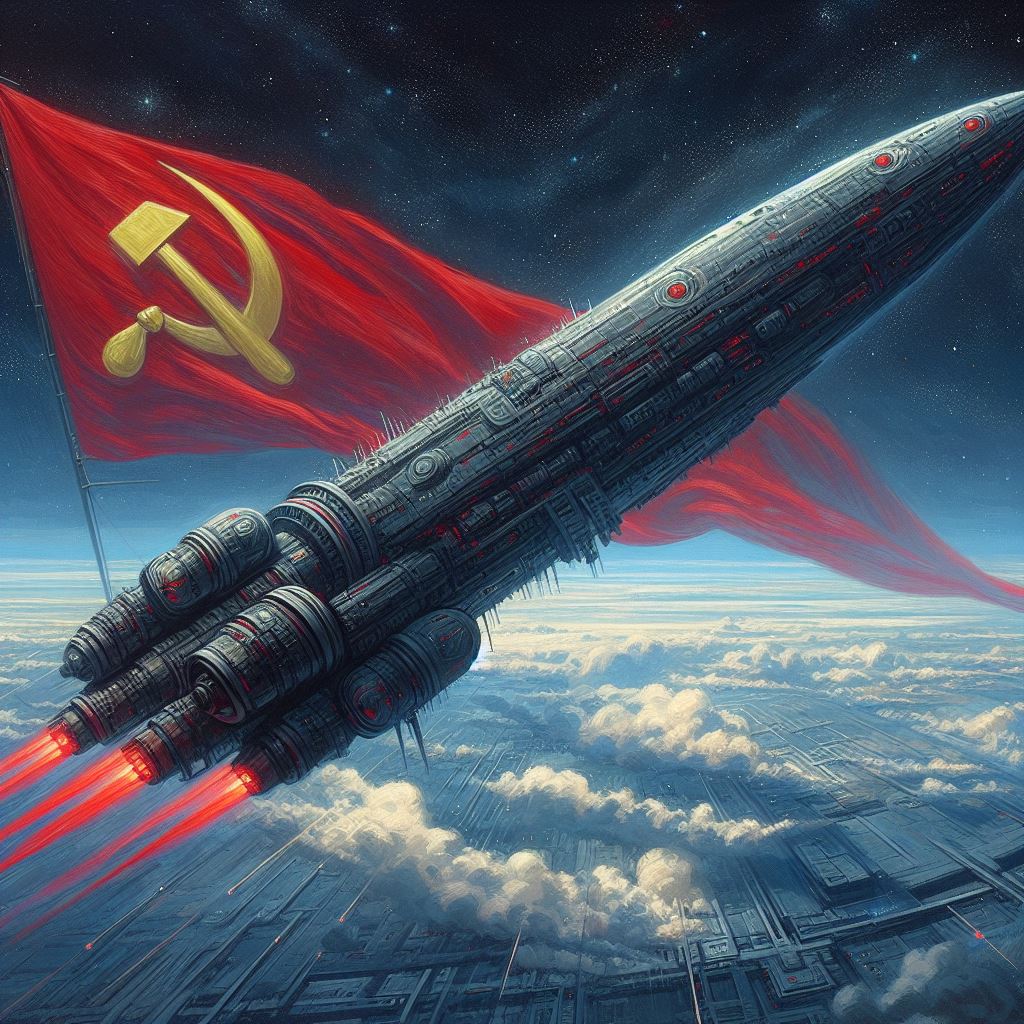What happened to free trade?
It’s only free trade if you’re trading with the FREEST COUNTRY ON EARTH 🦅🦅🦅
Free trade only ever meant that non-US countries must reduce or remove tariffs and remove capital controls vis a vis the US, so that US capitalists may exploit to their heart’s content.
Every country is absolutely free to trade with the US as much as they want*. Perfectly free trade!
*As long as the trade balance favours the US.
You see, free trade is only desired when you’re ahead not when you’re behind.
International transfers of weapons and equipment needed to make weapons has always been excluded and under additional restrictions.
Edit: Arms Export Control Act (AECA)
This is the reason why Microsoft can only sell the Windows OS to Iran if they remove strong encryption support (like newer versions of TLS). It’s nothing new at all.
Meanwhile, 40% of US DoD weapons system and infrastructure supply chains rely on Chinese semiconductors. 😂 https://cdn.prod.website-files.com/65e61e6392aba0fa1dba723e/66104c1d4e3ae7809bcd8082_Govini_2024_Numbers-Matter.pdf
Weapons of mass destruction rhetoric ye talkin’… I say its mere pretense…
You seem the type to look at any Global-South country buying ammonium-nitrate fertilizer, who happens to be anti-U.S hegemony, and claim they’re making bombs out of 'em
What weapons exactly?
Mobile electronics, computers, GPS? they’re tools to achieve military strategic goals, but not necessarily military
I don’t think China has any issues producing electronics, computers, or GPS. LMAO.
Here are the details of the restrictions - https://www.csis.org/analysis/balancing-ledger-export-controls-us-chip-technology-china
We’re talking about chips used pretty much exclusively for Artificial Intelligence use - which China uses to abuse human rights of its citizens and to develop weapons which threaten Taiwan, the Philippines, and all free trade moving through the South China Sea.
pretty much exclusively for Artificial Intelligence use
Not necessarily military… that’s sort of mentality the U.S and you westoid lackies gets when their innovation mainly comes from military funding, specifically the smartphone and the internet
Besides, why can’t be both electronics used for military-purposes and A.I be targetted
Also, what did I tell ye about confusing buying fertilizer for bomb-making?
which China uses to abuse human rights of its citizens and to develop weapons which threaten Taiwan, the Philippines, and all free trade moving through the South China Sea.
Umm…
How you immediately jump to this conclusion, not even explaining how directly A.I does this, reminds of this quote
I disengage from your conversation…
this would be a half-decent argument if the US wasn’t literally actively enabling an actual genocide in Palestine.
🤡🤡🤡
Walter White Face: Jesse what the fuck are you talking about?
Arms Export Control Act (AECA)
This is the reason why Microsoft can only sell the Windows OS to Iran if they remove strong encryption support (like newer versions of TLS). It’s nothing new at all - been around as long as I’ve been alive. Free trade rules only apply when national security rules don’t.
Typical liberal nonsense.
Everything can be considered national security. It’s a bogus excuse. If an enemy has food they can resist in a war against you longer therefore food exports should be stopped for reasons of national security. If an enemy has clean water then contaminating their water in case of war may allow them to hold out longer therefore water filter trade must be stopped. If an enemy has a bottling plant for soda it can be adapted to make weapons, therefore machinery for those must not be sold.
If an enemy cannot procure adequate iron or steel supplies then their war industry will collapse in a war, therefore exports of metals must be stopped for national security.
You should not sell them medicine because a healthy population is able to fight you better and one without vital medicine is more restless and likely to rise up and overthrow the government so you can put in place a puppet. This is the real rational behind sanctions which is economic warfare.
The fact is the US as the chief human rights violating abomination of a power for the last century has used everything to attempt to bully and brutalize enemies into subjugation.
During peacetime certain things should not be protected by national security as a blanket excuse. That includes things like technology products such as chips.
Just because the US weaponizes everything does not make everything national security related. It makes the US a brutal, vicious, malicious empire that murders millions while pretending to have some sort of moral highground. A highground it has but one build on a mountain of corpses and blood. Non-white corpses, proletarian corpses.
Baby-brain. Military tech like missiles does not need nor does it use the latest cutting edge tiny lithography but older lithographies which are well within the grasp of China and other nations. These bans are to stop them from competing with Apple and Android, to stop them from competing against western tech companies in innovations such as battery endurance, size, etc to make western products more appealing. That’s straight up trade war. It’s the same reason why they’re banning Chinese ship-yard cranes, to cripple their industry and give the west a permanent edge as part of a strategy of decoupling and campism to force the rest of the world at gun-point, at peril of access to the best, latest western tech of joining them in their embargo on China, of not trading in their own best interests but at gun-point in the best interests of the west.
But you’re so racist you wouldn’t care. All you liberals care about is white supremacy.
Ok but why the fuck would anyone give a fuck about US “nAtIoNaL sEcUrItY”? That’s
this is like banning sugar because it is an ingredient in rocket fuel.
Don’t lie to yourself, this is proteccionism.
deleted by creator
If everyone is embargoed then no one is. Let the US price itself out of existence lol.
Oh no true at all, somebody sure is. The US would functionally be.
They aren’t far off effectively sanctioning themselves at this point.
Shares in Tokyo Electron fell 7.5%, leading a drop in Japan’s Nikkei 225 Stock Average. Fellow chip gear providers including Lasertec Corp. and Screen Holdings Co. also ranked among the market’s biggest decliners. ASML’s stock was similarly down 9.9% in Amsterdam, even as the company reported better-than-expected second-quarter bookings. Shares of Applied Materials Inc., Lam Research Corp. and KLA Corp. — the three biggest American makers of chip equipment — also tumbled on Wednesday. Applied Materials, the largest of the three, fell as much as 7.8% in its worst intraday decline since November.
I don’t think the drop in share prices matter that much. The dips from previous announcements of sanctions went away quickly, because the chip industry overall is in a very strong position globally.
The administration is in a tenuous position. US companies feel that restrictions on exports to China have unfairly punished them and are pushing for changes. Allies, meanwhile, see little reason to alter their policies when the US presidential election is just a few months away.
This is really the crux of the issue, and not so much geopolitics. Some of the US companies that pushed for the sanctions (like Micron tech) have themselves suffered from Chinese retaliation (Micron tech “mysteriously” failed its cybersecurity review in China, and China has clamped down on germanium exports).
The American chip-equipment makers — Applied Materials, Lam and KLA — have been pressing their case in a series of recent meetings with US officials, according to people familiar with the situation. They have argued that current trade policies are backfiring, damaging American semiconductor companies while failing to halt Chinese progress as much as the US government hoped. But the companies don’t want the administration to use FDPR. They fear it will provoke Japan and the Netherlands to become defiant and stop cooperating.
Amazing to see western corporate interests just openly dictating government policy. The rest of the article just plainly lays out which company is telling its government to do what. We’ve dropped even the pretenses.

Its insane how much our favourite capitalist roader was vindicated holy shit. All that’s left is to press the communism button.
Western leftists criticizing Deng for his shitty chess moves when it turns out he was playing Go the whole time.
Hey that’s my line!
I’m not too familiar with Deng. Could you explain more of his geo-politics? Thanks in advance comrade.
Short version: he opened china to investment from western capital. The plan was to use western capital to fund the construction of factories with the condition of technology sharing. Gambit was capitalism would willing sell all of its advantages in order to gain profit. The risk being that capitalists would have sway in China (and leftists constantly purity testing China).
Thanks!
Yeah that, and to expand a little, he was often derided by hardliners for being a sellout, and the plan to develop productive forces in China had some close calls from a full capitalist restoration. It seems to have worked out so far however, since the PRC was originally an impoverished pariah state, and now it is more advanced in many respects than the west. The work that needs to be done now is to take the productive forces that the capitalists gleefully supplied in exchange for cheap labour and turn it towards domestic production and consumption.
for more check out https://redsails.org/china-has-billionaires/ it’s not specifically about Dengism but should give you more than enough context to understand it
This has a lot of introductory info on SWCC (Socialism With Chinese Characteristics)
This is pry the best introductory article on SWCC:
The long game and it’s contradictions.
and a good introduction to Deng is his interview with Oriana Fallaci.
More of his writings are on https://dengxiaopingworks.wordpress.com/
I’m not sure I would call him vindicated. He definitely bought into some of the free market economics of the 1980s which could have ended really badly. Reform and opening up only really succeeded because the Chinese government was willing to slow the pace of reform when Deng was pushing them to move faster. He also had China invade Vietnam which was a huge L.
True, the Sino Vietnamese war was an L, as expected of post Sino Soviet split Chinese foreign policy. And yeah I had the same concerns over liberalizing too fast, esp in the Jiang and Hu era, but it seems like that’s been reigned in too. Trust the process I guess.
I might be biased, but didn’t Vietnam repeatedly raid the border with USSR support before China invaded, and withdrew within a few days after taking several cities?
That is correct, there were border raids which prompted the invasion, but the Sino Soviet split is what caused the worsening relations which led to that. Basically, the invasion was cringe, even if there was some justification for it, but what was more cringe was the repudiation of Stalin and the revisionism in the USSR that followed by corn boy.
Idk I think the Sino Soviet split was pretty disastrous and is partially to blame for the fall of the USSR. Even if Khrushchev was wrong to denounce Stalin, there were reasons why Soviet leadership was trying to lower tensions with the west. It’s also not like allying with Nixon and Pol Pot was genuinely a better move geopolitically.
As far as I’m aware there were border skirmishes prior to China’s invasion. However, there was a context for that. The Sino-Soviet split led to China becoming very suspicious of Vietnam’s motives since they maintained good relations with the USSR. As such, China supported the Khmer Rouge in order to gain influence in the region.
I don’t have to explain why that was a huge mistake. However for context, Vietnam was forced to invade Cambodia after the Khmer Rouge crossed the border and massacred thousands of Vietnamese civilians. As a consequence Chinese leadership basically believed they had been encircled by the USSR and its allies. IIRC there was a troop buildup at the border as China tried to incite rebellion from ethnic minorities including ethnic Chinese within Vietnam. This is the context for the border skirmishes and the eventual invasion.
For a little more context: The rise of the Khmer Rouge and Pol Pot was basically triggered by the US carpet bombing Cambodia. After the US military got thrown the fuck out of Viet Nam, the direct invasion may have ended, but the CIA decided to double down and keep the war going through regional proxy forces, namely the Khmer Rouge, which the CIA was arming, funding and providing military intelligence to. The Khmer Rouge butchered a lot of civilians, but failed pathetically at invading Viet Nam and repelling counterforces. Border regions of Cambodia spent a decade under NVA occupation as a result, while the CIA and KR ran operations out of N. Cambodia and Thailand.
The CIA also kept stirring up fear and conflict with Viet Nam’s other neighbors, which is where that narrative of “The NVA and USSR won’t stop at the border” came from. My understanding is that the CIA was directly in contact with and trying to convince the PRC that Pol Pot was the real communist revolutionary and needed help, and that the Soviets were using a puppet regime to encircle China. Ofc it was just projection and domino theory bullshit. Deng and the entire PRC should have fucking known better.
Well this is why I think Deng was right to ensure the CPC maintained leadership within the PRC rather than pursue political liberalization alongside economic liberalization. The CPC may not be perfect. However, I do believe their structures allow them to course correct as needed and advance capable members into leadership.
That’s why I think they were even able to pull back when Deng’s reforms went to far. It’s also why I think they’ve been able to address corruption and uneven development under Xi.
Tbf only left-deviationists like the gang of four called im that.
Capitalist roader (affectionate)
Amazing to see western corporate interests just openly dictating government policy
You mean like the time the CIA couped Guatemala in 1954 for banana companies?
Yeah I guess. There’s still something about seeing the fuckery with your own eyes. It’s one thing reading about banana dictatorships in the history books, and another to live through a tech dictatorship right now.
I don’t think their pleas will work. They’re not important or big enough. NVIDIA went begging for the US to let them continue to profit from China and they’re way more important and they said no and the head of sanctions basically directly threatened them saying she’d adjust sanctions daily to prevent them getting around them with new products if necessary. Though financial capital has had and still has some interests in China, industrial capital in the west increasingly doesn’t benefit from continued trade and in fact as much of it is defense adjacent, benefits from fear-mongering, sanctions, and increasing tensions.
I have little doubt the US will continue to press the sanctions button harder and harder on China. They will hurt their own industries but help them briefly with short-term protectionism benefits. In the end though it will force China to develop their own which will hurt the west but that’s deferred pain and they hope to have a better plan or position by then.
How to make other countries abandon the dollar 101
deleted by creator
They can’t until they can. Nothing stays the same forever.
US copium trying to sanction China by proxy. China already has advanced semiconductor tech.
deleted by creator
Good post, but disagree on the last bit. China has been building alternatives to the U.S. model for a reason — they can offer their services to other countries alienated by the U.S. system (remaining AES countries, the Global South) and anyone else who sees the obvious writing on the wall and is in a position where they don’t have to continue bowing down to their dying master
Exactly. I don’t buy into the pessimism because China has been building its own alternatives to Amazon and Google for precisely such a scenario. And yes, the West may not adopt them but the world is bigger than just this increasingly insular and self-isolated West, and the rest of the world will get the best of both worlds. The global south will have no issues using Chinese platforms in parallel with Western platforms, and eventually, hopefully, even making their own. That is just one of the many benefits of multipolarity.
I don’t understand this analysis. Surely it would be easier for the Americans to control and damage the Chinese economy if Xi Jinping and Chinese business leaders were typing out emails and memos on backdoored Microsoft software or iPhones. Forcing Huawei to develop their own tech via hostility means that the Chinese market is lost forever and now the American security apparatus has to deal with an opaque ecosystem they can’t backdoor.
I’ve heard people say that the October Hamas attacks on Israel were so surprising because they were planned entirely via Chinese tech and therefore was not picked up by Zionist elint. I don’t necessarily think that’s true or even the only reason, but it’s not an implausible example of how forcing China to make its own systems is a huge own goal.
All this hostility has just made China more and more self sufficient. I just don’t see how that gives the US more leverage than a China which is completely dependent on Western tech.
deleted by creator
The result is that Huawei displaces all its domestic competitors within China, but the other companies are now also taking over Huawei’s share in the global market.
Other Chinese companies aren’t able to produce what Huawei is making, so what this means is that the largest Chinese domestic buyers (the military, the bureaucracy, the academy) are less and less dependent on international trade to function, making the Chinese state more resilient along multiple dimensions specifically because Huawei is building advanced tech.
The US can damage China’s economy as long as China continues to stay as a net exporter country
And it will essentially ALWAYS be a net exporter in pure dollar values because it has the second largest population in the world. It will always need to import low cost commodities like food and it will always be able to outproduce everyone on high priced commodities like electronics. There is really no risk of China being a net importer in the next century.
The vast majority of the businesses around the world are too deeply tied to the US controlled infrastructures like Amazon/Google
I think you overstate this. There are plenty of companies that use those infrastructures purely for commodity virtualization and seamlessly move been cloud providers based entirely on price, not on technological features. Then there’s the massive amount of infrastructure that is private and not on the cloud at all. They’re already locked in to domestic technology because American companies like IBM, EMC, and Oracle trapped them decades ago. Those people were never going to move their workloads to Chinese infrastructure, but if they have a presence in China they are absolutely going to buy Chinese hardware to build their new private infrastructure.
There are a set of companies that are on USA-based public cloud providers that are serving USA-based customers and they would never want to be on Chinese-located tech because it’s too far from their markets. Then there’s a set of companies on USA-based public cloud providers that serve AsiaPac and use AWS/Google/Microsoft because those companies have physical presence in China. China has the power to influence exactly how those data centers work and in fact many of those data centers are already contract data centers meaning they are Chinese companies under the hood providing the facilities for USA companies for their presence in AsiaPac.
In short, the number of computing dollars that could go to China but won’t because of the USA is going to be very small relative to the total market size. The much larger dollar values are in which chips get used where.
It would be really funny if the yanks forced the Dutch into BRICS membership.
(I know this won’t happen, as the Dutch are going to lay down flat and prostrate themselves once their overlord tells them to do so but it would be really funny)
ah yes, i love DICKS (dutch, india, china, kenya, south africa)
Japan and Netherlands joining BRICS in 2025 or 26?
lol
Way too cucked for that
Nothing would make me happier, but I don’t think it is realistic anytime soon.
I wouldn’t say it is off the table forever, but we need to kick the US out first.
Cmon Biden, force them to fully pivot to China!
“Most severe trade restrictions available” just sounds like bullshit to scare their leaders. Also feels like “double secret probation” from Revenge of the Nerds.
Most severe trade restrictions available
No more McDonald’s and Coca Cola for the Dutch!
if you really want to scare them threaten their mayonnaise supply
And yet the Dutch see the US as allies
Their government does at least.
The people as well sadly
Dutch people are immensely cucked to hell, I can confirm.
The joys of being a vassal of the empire. Netherlands and Japan now seeing their high tech industry be destroyed in order to serve US interests. As Kissinger so aptly put it, it may be dangerous to be America’s enemy, but to be America’s friend is fatal.
rest in piss Kissinger
- friendly countries trade semiconductor tech to China of their own volition
- this is bad and they need to be punished
The best part is that they can’t even frame this as China overstepping or coercing them into doing it.
Free market for me but not for thee
Sanction raj
If China develops a competitor for ASML, its literally JOEVER for the west lol. And sanctioning this particular field would incentivize china to do exactly that 😂
Maybe they’ll grow some balls and tell the US to GTFO (whishful thinking).
























